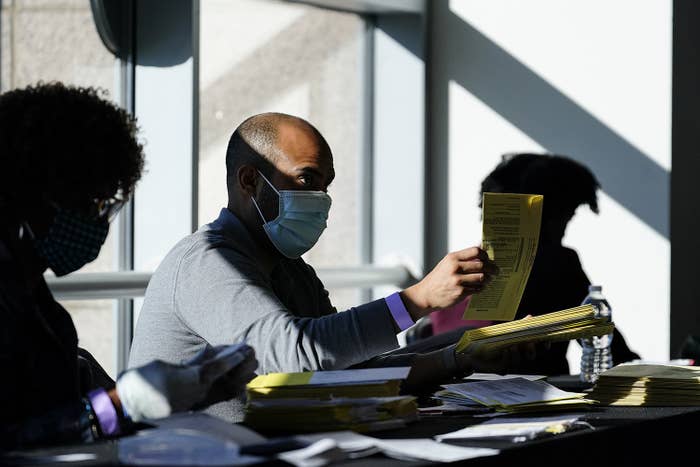
As the presidential election increasingly tightens in Georgia, the race to secure the state’s 16 electoral votes may come down to a recount. The state is among five battleground states whose crucial count is still underway amid an increase of mail-in ballots due to the coronavirus pandemic.
As of Thursday afternoon, election officials said there are nearly 48,000 votes still uncounted, with the bulk of the outstanding ballots in Chatham and Fulton counties. The margins are so close that it’s very easy to see the state heading into a recount.
President Donald Trump is currently leading by a margin of about 13,000 votes in the state, but former vice president Joe Biden is expected to pick up the bulk of votes; Chatham and Fulton lean toward Democrats, and the mail-in ballots have been predominantly in favor of Biden. Either candidate could still come out ahead.
And even the nominal loser would possibly be able to request a recount. In Georgia, a candidate can ask for a recount when the margin is less than .5% of the total votes cast for the office. The request must be made within two days following the certification of election results and is ultimately up to the discretion of the secretary of state.
There is a history of recent recounts in part of the state. In 2017, Mary Norwood called for a recount in the Atlanta mayoral race, citing an unofficial count that handed her opponent Keisha Lance Bottoms the win. Bottoms maintained her victory with a slim margin of 832 votes while Norwood gained no extra votes after the second count. The result of the recount was announced two weeks later on Dec. 20, after the city recounted more than 92,000 ballots.
On Wednesday, the Trump campaign and Georgia Republicans filed a lawsuit in Chatham County arguing that a judge should order the county to make sure they secured and accounted for ballots received after 7 p.m. on Election Day. The case questioned the validity of 53 absentee ballots after a witness claimed it was unclear if late-arriving absentee ballots were being mixed in with on-time ballots. A superior court judge found no evidence of the complaint and dismissed the case.
Correction: A candidate needs to win a race by .5% or less of the vote for the race to be eligible for a runoff. The state's past requirements were cited in an earlier version of this story.
